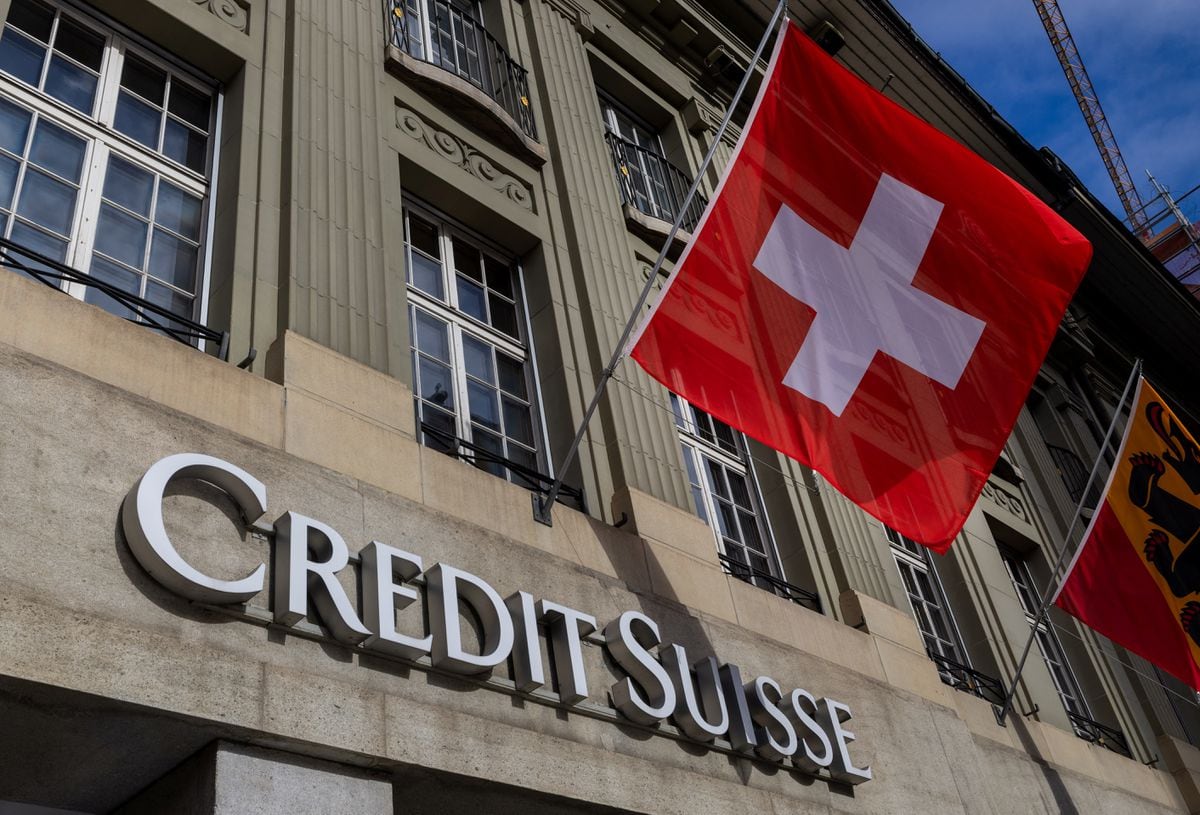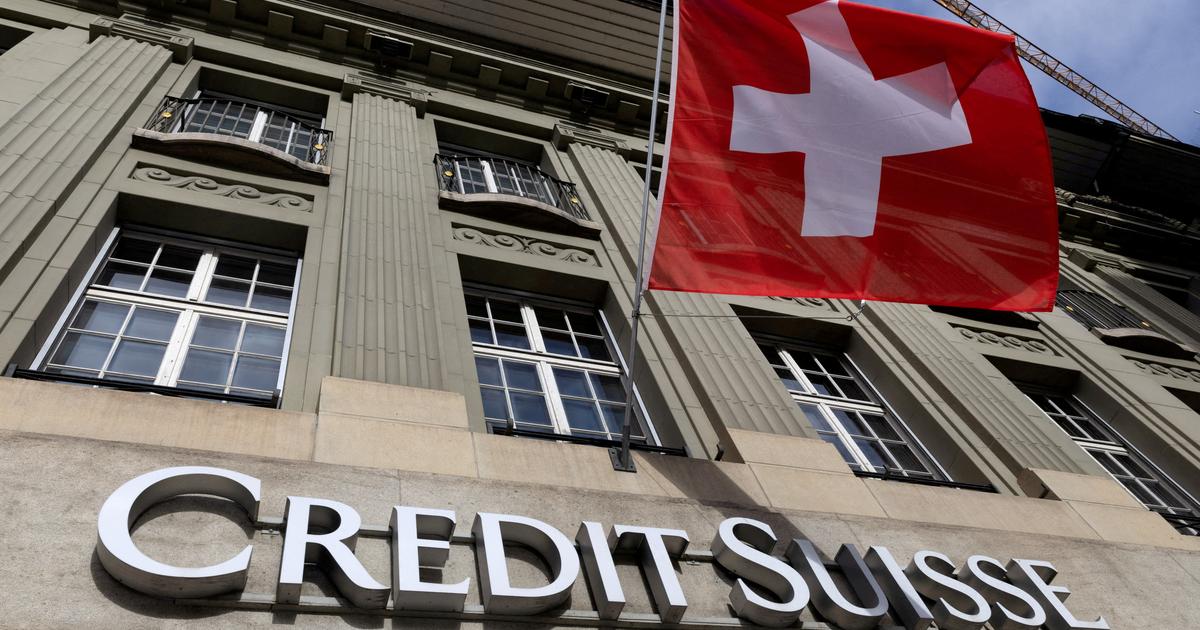Investing in a bank that has survived 167 years may seem like a safe bet.
Even more so if it is based in Zurich, the economic capital of Switzerland, a country as linked to finance as the Gulf states are to oil, Germany to the automobile, Spain to tourism or Taiwan to chips.
This is what the owners of the Saudi National Bank (SNB) must have believed last fall, when the Swiss entity, in the midst of a crisis, launched a capital increase of 4,000 million francs – a similar amount in euros.
The Saudis rushed in with a check for 1.4 billion that suddenly made them the largest shareholder with a 9.88% stake.
They felt that they had closed a round deal: they had bought at a bargain price a piece of a historic Swiss bank that had probably hit rock bottom.
Credit Suisse's new Arab tenants paid 3.82 francs per share in November, 60% less than it was worth two years earlier, and a far cry from the 80-plus peak of 2007, before the Great Recession, when everything It was wine and roses for the bank.
They could think, without it being a far-fetched thesis, that the punishment for the share price after more than a decade of scandals, instability at the top, fines from the regulators and poor results, should be close to ending.
In a normal environment, they might have gotten away with it and the move would have paid off, but on Wednesday, March 8, a publicly unknown Californian bank called Silicon Valley Bank went public with its problems, and on March 10 it was intervened by the US
More information
UBS agrees to buy Credit Suisse for 3 billion euros
The eyes of the market then began the witch hunt.
Who could be in trouble if the crisis in the US regional banks spilled over to Europe?
It didn't take much thinking to find the answer.
Credit Suisse, epicenter of all evils, had just suffered a deposit flight of more than 100,000 million only in the last quarter of 2022. It was the easiest prey.
And during the past week there would not be a single day of rest.
Its shares were among the hardest hit when European markets opened on the Monday immediately after Silicon Valley Bank went bankrupt.
On Tuesday he published his annual report and in it he recognized "relevant weaknesses" in his financial information control systems.
And on Wednesday, a historic communication blunder committed by the Saudis themselves ended up breaking trust.
When Ammar Al Khudairy, chairman of the SNB, was asked if he would put more money into Credit Suisse, the answer was emphatic.
"Absolutely not".
It is difficult to guess what would have happened if the answer had been different.
But we do know what triggered that refusal: a brutal attack by the markets on a helpless and helpless Credit Suisse.
Suddenly stripped of the shield of its biggest investor, the shares fell 24% at close, after having plummeted more than 30%.
Credit Suisse was officially in the crosshairs.
Events happened at a speed that few expected.
On Thursday the bank borrowed $50 billion in loans from the Swiss National Bank to shore up its liquidity.
But on Friday, with deposit withdrawals accelerating at a rate of 10 billion a day, the authorities were convinced that there was no way for it to continue on its own: a buyer was needed.
Negotiations over the weekend culminated in its sale on Sunday to UBS, the country's largest bank.
It was not easy for him to accept staying with an entity on the brink of the precipice, and for assuming that risk he demanded a heavy discount.
It was given to him.
The Saudis resisted, but they had to lose: going to the market on Monday without a closed solution would have been suicide once it was known that it was for sale at a steep discount,
so its negotiating position was weak.
The final price, 0.76 Swiss francs per share.
The Saudi National Bank had just lost 80% of its investment in just five months.
1,000 million evaporated, about seven million a day.
They have not been the only ones defeated.
The list of victims is long, starting with the owners of 16,000 million euros in high-risk debt issued by the entity, who have lost everything.
And by other Gulf shareholders also penalized, such as the Qatari Sovereign Fund (owner of almost 7% of Credit Suisse), and the Saudi Olayan family (3%).
Harris Associates escaped just in time
Just hours after that remarkable loss took place, the Saudi National Bank—the largest bank in Saudi Arabia—issued a statement to minimize the impact of that disastrous investment.
They recalled that it represents less than 0.5% of its assets, and 1.7% of the investment portfolio.
In other words, 1,000 million volatilized in five months could be a painful loss, but they would survive comfortably without even having to tweak their roadmap one iota.
"The changes in the valuation of SNB's investment in Credit Suisse have no impact on SNB's growth plans, nor on the prospective orientation for 2023," says the text, in which they recall that they have 945,000 million riyals in assets (233,000 million euros).
There were those who went the opposite way from the Saudis and escaped from Credit Suisse just before the gale that swept the bank away.
The American fund Harris Associates, based in Chicago, was for years the largest shareholder with 10% of the titles, but in October, when the capital increase was announced, it began to reduce its position until leaving it at 5% at the end of year.
Then, in March, it was revealed that he had parted with his entire package.
They were right to do it.
Even being born in 1856 doesn't make you immune to the conflation of a bank run and ineffective management.
Follow all the information on
Economy
and
Business
on
and
, or in our
weekly newsletter
Subscribe to continue reading
Read without limits
Keep reading
I'm already a subscriber








/cloudfront-eu-central-1.images.arcpublishing.com/prisa/GDO6WKTQ7RFXX2LM5LUOSIODT4.jpg)
